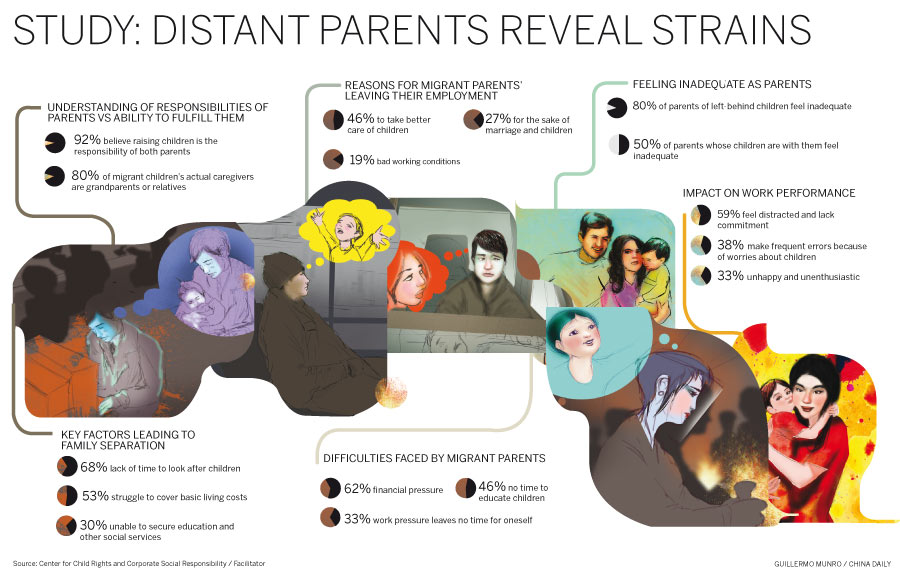Migrants feel pain of separation
Updated: 2014-01-10 01:19
By FAN FEIFEI and HE DAN (China Daily)

The situation has taken its toll not only on parent-children relationships, but on migrant workers' performance at factories.
More than half of the respondents said they felt distracted or not committed to their work. One in three said they made mistakes in their work as a result of worrying about their children's well-being.
The research also found that migrant workers chose to leave their children behind because of a shortage of income, difficulties in finding suitable schools, and busy work schedules that leave them with no time to be with their children.
The hukou household registration system means many children of migrant workers cannot enjoy equal rights to education, healthcare and other social services in cities.
Many migrant workers said they would consider returning home to be reunited with their families if they could find jobs there.
The findings may help enterprises to better fulfill their corporate social responsibilities, as a labor shortage has emerged in many places, the report said.
Hu suggested that companies do more to help migrant workers solve their family problems, such as setting flexible working hours for migrant workers with children, or providing activity centers where children can do homework or take part in after-school activities.
Li Tao, director of the social work development center of Facilitator's Beijing branch, said: "Most of the enterprises interviewed showed little concern about the challenges that migrant parents face, including economic pressures and family communication breakdowns.
"But they agreed that such problems would certainly affect their business."
Li said most of the enterprises don't have support strategies in their corporate social responsibility blueprints for migrant workers with children.
Liu Kun, spokesman for electronics giant Foxconn Technology Group, said the problem of migrant workers integrating with the cities they work in needs solving urgently, but it is impossible for it to be solved entirely by companies.
Without efforts from the governments in host cities to remove barriers, including hukou and inequality in access to public services, companies' efforts could make little difference, Liu said.
Zhang Yi, deputy director of the Institute of Sociology under the Chinese Academy of Social Sciences, said enterprises could play a positive role in creating a family-friendly environment for migrant worker employees, such as by providing dormitories for couples and running kindergartens.
Contact the writers at fan-feifei@chinadaily.com.cn and hedan@chinadaily.com.cn